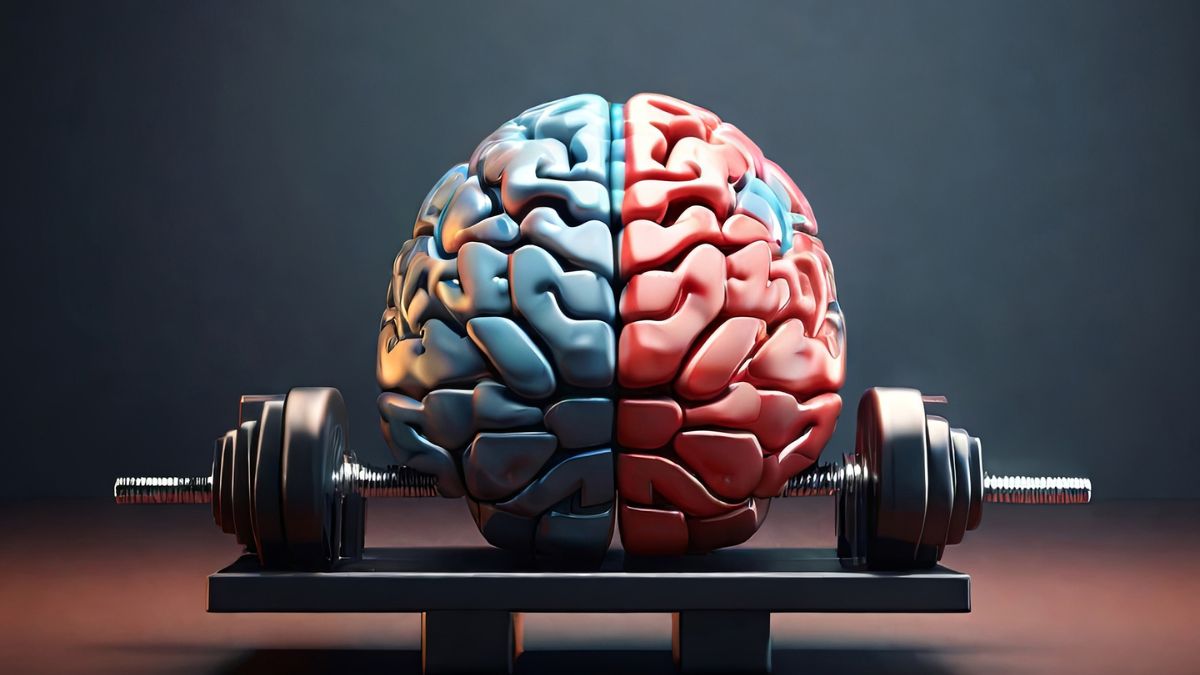HEALTH
How to Utilize Mega-Personal.net Health Archives

In today’s fast-paced world, staying informed about health can feel overwhelming. With countless sources of information available at our fingertips, it’s challenging to sift through the noise and find what really matters. Enter Mega-Personal.net Health Archives—a treasure trove of reliable resources designed to empower you on your wellness journey. This platform offers a wealth of knowledge covering everything from nutrition and fitness to mental health insights. Whether you’re looking for practical advice or the latest research findings, these archives are here to guide you every step of the way. Let’s dive into how you can make the most out of this incredible resource!
Benefits of Using Mega-Personal.net Health Archives
Using Mega-Personal.net Health Archives opens doors to a wealth of information. You can access an extensive library covering various health topics. This resource is perfect for anyone looking to enhance their understanding of wellness.
The archives offer insights from experts in the field. You’ll find research-backed articles, which provide reliable data and tips. This helps you make informed decisions about your health.
Another key benefit is the user-friendly interface. It’s easy to search for specific topics or browse categories that interest you. Whether you’re curious about nutrition, mental health, or fitness trends, there’s something valuable waiting for you.
Additionally, engaging with this content fosters proactive health management. By staying informed, you empower yourself to take charge of your well-being effectively and efficiently. The more knowledge you gain, the better equipped you’ll be in making healthier choices daily.
How to Access and Navigate the Archives
Accessing the Mega-Personal.net Health Archives is straightforward. Start by visiting the website and locating the archives section in the main menu. The user-friendly layout makes it easy to dive right into a wealth of information.
Once you’re in, explore various categories tailored to your interests. You’ll find topics ranging from nutrition to mental health, all organized for effortless browsing. Use filters or search bars for more targeted results.
Navigating through articles is a breeze as well. Each piece features clear headings and accessible language, ensuring that even complex topics are easy to understand. Bookmark valuable pages for quick reference later.
Don’t hesitate to interact with featured tools such as infographics and videos that enhance learning experiences further. Embrace this digital resource fully – there’s much knowledge waiting just a click away!
Finding Specific Information and Topics
When diving into the mega-personal.net health archives, pinpointing specific information is a breeze. The intuitive search feature allows users to type in keywords related to their queries. This makes finding relevant articles quick and straightforward.
You can also browse through categorized sections tailored for various health topics. Whether you’re interested in nutrition, fitness, or mental wellness, there’s an abundance of resources waiting to be explored.
For those who prefer exploring at their own pace, the archive offers trending topics that highlight current discussions within the community.
Additionally, utilizing filters can streamline your search even further. You might focus on recent publications or filter by authors known for expertise in particular areas.
With these tools at your fingertips, accessing precise information has never been easier. So go ahead and uncover what interests you most!
Personalizing Your Experience with Mega-Personal.net
Personalizing your experience with Mega-Personal.net can transform the way you access health information. Start by creating an account to tailor content specifically for your needs.
Once registered, explore customization options. You can choose topics that interest you most, from nutrition and fitness to mental wellness. This ensures that the articles and resources you see are relevant.
Engage with interactive features such as quizzes or personalized recommendations. These tools help refine what information is displayed based on your preferences.
Don’t forget about saving favorite articles or bookmarking essential resources. This makes it easy to return whenever you’re in need of guidance or inspiration.
Feeling overwhelmed? The platform allows you to adjust notification settings, ensuring only the most pertinent updates reach you without cluttering your inbox.
Staying Updated with the Latest Health Information
Staying informed about health trends is crucial. Mega-Personal.net Health Archives makes this easy.
The platform regularly updates its content. You can find fresh articles, studies, and expert insights that reflect the latest scientific discoveries.
Subscribing to newsletters or alerts can be a game-changer. You’ll receive notifications straight to your inbox when new information becomes available.
Using social media channels also adds value. Follow their accounts for quick tips and engaging discussions on current health issues.
Engage with community forums too. They often provide real-time insights from other users who share similar interests in health topics.
With these resources, you won’t miss out on vital information that could enhance your well-being journey. The more you know, the better equipped you’ll be to make informed decisions regarding your health choices.
Conclusion: The Power of Utilizing Mega-Personal.net Health Archives for Your Well-Being
Utilizing the resources available through Mega-Personal.net Health Archives can significantly enhance your understanding of health and wellness. With a wealth of curated information at your fingertips, you have the power to take charge of your well-being. By accessing this archive, you’re not just reading; you’re empowering yourself with knowledge that can influence daily choices.
Whether you’re seeking specific topics or looking for general advice on maintaining a healthy lifestyle, these archives offer invaluable insights. Personalization features ensure that the content resonates with your unique needs and preferences, making it easier to find what matters most to you.
Staying informed about the latest trends and research in health is crucial in today’s fast-paced world. The Mega-Personal.net Health Archives make this possible by providing up-to-date information tailored for users like yourself.
Investing time in these archives is an investment in yourself—your mind, body, and overall quality of life are worth it. Embrace this resource as part of your journey towards better health today!

HEALTH
5 Reasons to Choose Livpure Colibrim for Your Water Purification Needs

Clean, safe drinking water isn’t a luxury—it’s essential. With increasing concerns about water quality and the presence of contaminants, finding a reliable purifier is more crucial than ever. That’s where Livpure Colibrim enters the scene, offering cutting-edge water purification technology designed for modern households like yours.
Curious why Livpure Colibrim is the ultimate choice for water purification? In this blog, we’ll break down the top five reasons why this device stands out from the competition. Whether you’re concerned about health, convenience, or environmental impact, Livpure Colibrim ticks all the right boxes.
1. Unmatched Purification Technology
The Livpure Colibrim isn’t just any water purifier—it’s a powerhouse of advanced purification technology. With a multi-stage filtration process, this purifier ensures that every drop of water you drink is free from harmful contaminants like bacteria, viruses, lead, and pesticides.
Key Features of the Filtration System:
- RO + UV Purification: Removes even the smallest impurities, leaving water that’s not only clean but also safe from harmful microorganisms.
- Mineral Retention Technology: Unlike some purifiers that strip essential minerals, Livpure Colibrim retains vital nutrients, ensuring your water is both pure and healthy.
- Smart TDS Adjuster: This feature balances the Total Dissolved Solids (TDS) in your water, offering a refreshing taste every time.
With Livpure Colibrim, you’re investing in peace of mind, knowing that your family is consuming water of the highest quality.
2. Compact Design Meets Outstanding Durability
Space is often a concern in modern kitchens, which is why Livpure Colibrim boasts a sleek, compact design that can fit seamlessly into any space. But don’t be fooled by its understated appearance—it’s built to last.
- Space-Saving Design: Unlike bulky traditional purifiers, Livpure_Colibrim can be easily installed on walls or countertops, leaving your kitchen uncluttered.
- Modern Aesthetics: Its stylish and minimalist design complements contemporary kitchen interiors.
- Robust Build: Constructed with high-quality, durable materials, the purifier is designed to withstand daily usage without compromising performance.
If functionality and style are equally important to you, Livpure Colibrim has you covered.
3. Energy-Efficient and Eco-Friendly
Caring for the environment while catering to your family’s needs is no small feat. Thankfully, Livpure Colibrim is both energy-efficient and eco-conscious.
- Low Power Consumption: The purifier’s advanced design ensures it uses minimal electricity without compromising on performance.
- Optimized Water Usage: Traditional purifiers may waste water during the filtration process, but Livpure_Colibrim minimizes wastage, maximizing efficiency.
- Sustainable Filters: The device incorporates reusable and easy-to-replace filters that reduce the environmental footprint.
By choosing Livpure Colibrim, you’re not just investing in your family’s well-being—you’re also contributing to a greener planet.
4. User-Friendly Smart Features
Who says advanced technology has to be complicated? Livpure Colibrim makes life easier with its smart features that enhance convenience.
Intelligent Features You’ll Love:
- Digital Display Panel: Monitor water quality, filter life, and tank capacity at a glance.
- Filter Replacement Alerts: Never guess when it’s time to change your filters—Livpure notifies you in advance.
- Automatic Shut-Off: Prevents water wastage and ensures safety when the system is idle.
Whether you’re tech-savvy or prefer simplicity, Livpure Colibrim strikes the perfect balance between innovation and ease of use.
5. Affordable and Cost-Effective
High-quality water purification doesn’t have to break the bank. Livpure Colibrim offers an excellent return on investment with its affordable price point and cost-saving benefits over time.
- Budget-Friendly Price: You don’t have to compromise on quality for affordability—Livpure delivers both.
- Low Maintenance Costs: With long-lasting filters and minimal upkeep, maintaining your purifier is hassle-free.
- Health Savings: By ensuring access to purified water, you’re potentially reducing medical bills tied to waterborne illnesses.
Additionally, Livpure frequently offers exclusive discounts and subscription plans, making it even easier for families to access premium water purification.
Experience the Livpure Difference
Your choice of water purifier isn’t just another appliance—it’s an investment in your family’s health and well-being. Livpure Colibrim stands out as a trusted partner in this endeavor, thanks to its advanced technology, compact design, eco-friendly features, user-friendly interface, and cost-effectiveness.
With Livpure_Colibrim, you’re not just drinking water—you’re drinking better water.
Make the Switch Today
Why wait? Elevate your water quality and prioritize your family’s health by choosing Livpure Colibrim. Experience the difference for yourself—visit our website to learn more and order yours today!
HEALTH
The Essential Guide to Short-Term Treatment Programs

Introduction to Short-Term Treatment Programs
Short-term treatment programs have become valuable tools for seeking quick, effective therapeutic interventions. Defined by their condensed timeframes, these programs promise intensive, results-driven approaches. With the growing demand for flexible treatment options, they have become ideal solutions for those unable to commit to long-term programs. These programs address various conditions and equip people with the skills necessary for long-term change.
Historically, short-term treatment programs were predominantly tailored for substance abuse cases. Today, however, their scope has broadened significantly, now covering a broad spectrum of mental health issues, behavioral challenges, and more. The flexibility offered by these programs allows individuals to take control of their health without disrupting everyday life too drastically. Understanding these elements can help individuals make informed choices about their journey to wellness.
Benefits of Short-Term Treatment
The standout benefit of short-term treatment programs is their high completion rates. The focused and intensive nature keeps participants engaged and motivated, enabling them to achieve recovery milestones swiftly. This swift progress is often crucial for those who cannot afford an extended time away, making these programs highly desirable. Additionally, they support faster integration into everyday life, which is crucial for maintaining job responsibilities and family commitments. Participants often find that these programs foster the development of essential time-management and prioritization skills, further aiding the recovery journey. For those looking for efficient and focused solutions, a 28 day rehab is one option gaining traction among healthcare professionals and participants alike.
Cost-effectiveness is another noteworthy advantage. Since these programs operate on shorter timelines, they generally require fewer resources and, as a result, are often more affordable. This economic benefit and reduced time away from work or personal obligations make these programs accessible to a larger population. Furthermore, they offer a structured yet flexible environment that helps instill positive habits and coping mechanisms necessary for sustained recovery, extending their impact beyond the immediate duration of the program.
Types of Short-Term Treatment Programs
The landscape of short-term treatment programs is diverse, offering several formats to cater to varied needs. Inpatient facilities provide a controlled environment where individuals can focus solely on recovery, free from external distractions and temptations that may hinder their progress. On the other hand, outpatient therapy allows participants to continue their daily routines while attending treatment sessions, benefiting those with ongoing obligations.
Some programs specialize in holistic approaches, integrating therapies like mindfulness, yoga, and nutrition counseling, while others may focus primarily on cognitive-behavioral techniques. Each type of program has its strengths, and evaluating these can help individuals choose the path that best aligns with their personal needs and lifestyle. Exploring the various types of treatment available can guide this decision-making process, ensuring that individuals embark on a course that is both attainable and effective.
Choosing the Right Program for You
Selecting the right short-term treatment program is a critical, personalized decision. To start, evaluate your personal goals and the specific challenges you face. What issues do you want to address? What changes do you hope to see in your life post-treatment? Identifying these answers will provide clarity when assessing different programs. Financial considerations also play a significant role, as insurance coverage varies widely between programs. Understanding your financial position and seeking programs that align with your budget is critical to ensure sustained participation.
Consulting with healthcare professionals or counselors can provide insight into which treatment options offer the best prognosis for your situation. Remember, the right choice should feel like a partnership between you and the treatment provider, leading to mutual commitment and success. Empowering yourself with available options and consulting trusted sources are necessary steps in this decision-making process.
Overcoming Common Challenges
Short-term treatment isn’t without its hurdles. Common obstacles include adjustment periods, particularly when transitioning out of programs, and the risk of relapse. Many former participants note that aftercare and consistent follow-up play pivotal roles in maintaining progress during treatment.
Preparing for these challenges can significantly improve outcomes. Setting realistic expectations, maintaining open communication with therapists, and engaging loved ones is key to navigating these challenges effectively. Developing a solid aftercare plan, such as continuing counseling sessions or joining a support group, is an effective way to ensure continued success. Staying proactive and connected to support systems proves invaluable to individuals recovering from any condition.
Final Thoughts on Short-Term Treatment Options
Short-term treatment programs offer efficient, focused paths to recovery, developed with the recognition that time is precious for those seeking help. Their comprehensive nature ensures participants receive intensive care within shorter periods, often achieving remarkable success and paving the way for meaningful life changes. Combining professional care, personalized support, and structured programming can empower participants to achieve lasting positive transformations.
With the right choices and support, these programs can pave the way to lasting positive changes, providing clarity and empowerment to those they serve. As participants emerge from these programs, they are often equipped with the tools necessary to continue progress independently, ensuring that the benefits of short-term treatment extend long into the future.
HEALTH
The Art of Brain Health: Strategies for Optimal Cognitive Function

Introduction to Brain Health
Brain health encompasses cognitive, emotional, and psychological well-being, affecting our thoughts, feelings, and interactions with the world. Maintaining robust brain health becomes crucial for a flourishing life as we age. It improves decision-making skills, memory, and focus, impacting our daily lives, and is not limited to older people.
According to expert neurologists, simple lifestyle alterations can have a galvanizing effect on cognitive longevity. Integrating key elements such as balanced nutrition, consistent physical activity, and regular mental engagement into our daily routines can significantly positively impact our brains. Proactively investing in these foundational aspects offers immediate benefits and fortifies our mental resilience against age-related decline.
The Role of Nutrition in Cognitive Function
Eating meals high in vitamins, minerals, healthy fats, and antioxidants can improve brain function, prevent neurological illnesses, and slow mental aging. The capacity of fatty fish, which are high in omega-3 fatty acids, to form gray matter membranes around brain cells has been connected to enhanced cognitive function. Adequate hydration is crucial for maintaining the brain’s optimal chemical balance, promoting alertness and mental clarity. Neglecting hydration can lead to symptoms like confusion, fatigue, and diminished concentration, emphasizing the importance of dietary adjustments in brain health.
Exercise: A Catalyst for Brain Performance
Physical exercise significantly impacts the brain, improving mood, sleep, and stress reduction. It promotes brain growth and tissue volume and can improve mental acuity. Aerobic exercises like running, cycling, and swimming stimulate heart rate, improve circulation, and increase oxygen flow to the brain. Balance and muscle-strengthening exercises enhance these benefits by promoting coordination and reducing stress-induced mental load. These benefits are crucial for maintaining optimal brain function and preventing potential issues if left unaddressed.
Mental Stimulation and Brain Activity
Mental agility, like a muscle, requires consistent exercise to grow stronger and more resilient. Long-term cognitive function maintenance can be achieved by partaking in mentally taxing activities such as puzzle solving, playing an instrument, or learning a new language. These activities foster neural plasticity, heightened focus, and improved problem-solving skills. Social interaction, such as engaging in conversations or spending time with family and friends, also provides emotional benefits and acts as a buffer against cognitive decline, proving that “laughter is the best medicine.”
The Importance of Sleep for Brain Function
Sleep is a cornerstone for mental health, offering the brain a crucial period to restore, rejuvenate, and fortify its cognitive mechanics. Deep sleep improves learning and memory retention by allowing the brain to organize and consolidate information learned during the day. On the other hand, the lack of restful sleep can trigger a cascade of cognitive impairments, including poor concentration, forgetfulness, and even impaired judgment.
Creating an ambient environment conducive to relaxation is essential to ensure restorative sleep. Habits like establishing a comfortable resting environment, reducing screen time before bed, and a regular sleep schedule can all help you get better sleep and enhance your brain health.
Stress Management: Protecting Your Brain
Chronic stress is a stealthy adversary to cognitive health, contributing to issues like mental fatigue and disrupted concentration and even exacerbating conditions such as depression and anxiety. Effectively managing stress is crucial for safeguarding cognitive function. Mindfulness meditation, yoga, and diaphragmatic breathing can create a buffer against stress, cultivating peace and mental clarity.
Relaxing hobbies or leisure activities can also significantly reduce stress levels by protecting the brain from the long-term effects of stress and encouraging a balanced emotional state.
Recent Advances in Brain Health Research
The scientific inquiry into brain health is rich with ongoing advancements, offering intriguing insights into how we can optimize cognitive functions and prolong brain vitality. Groundbreaking research in neuroplasticity indicates that the brain can rewire itself, adapting to new challenges and environments throughout its lifespan. Studies suggest that lifestyle modifications can enhance this neuroplastic potential, thereby increasing cognitive reserve and mitigating the onset of neurodegenerative disorders.
Stay abreast of groundbreaking findings and expert insights from resources such as Psychology Today, and leverage this information to make informed decisions about your cognitive health.
Lifestyle Changes for Long-Term Brain Health
Ensuring wellness involves making choices today and embracing holistic lifestyle changes that foster long-term cognitive health. Simple actions like a diverse diet, regular exercise, and fulfilling activities can help the brain reach its full potential, enhance cognitive resilience, and enjoy life’s facets. This comprehensive approach elevates understanding and appreciation of brain health, providing immediate benefits and sustained cognitive prosperity.
-

 TECHNOLOGY2 weeks ago
TECHNOLOGY2 weeks agoHow the Creators of Izonemedia360.com Are Redefining Digital
-

 BUSINESS2 months ago
BUSINESS2 months agoA Deep Dive into Pedrovazpaulo Human Resource Consulting
-

 TOPIC2 months ago
TOPIC2 months agoLwedninja: The Ultimate Resource for Aspiring Ninjas
-

 TECHNOLOGY2 months ago
TECHNOLOGY2 months agoUnlocking Success: Coyyn.com Digital Business
-

 CRYPTO3 months ago
CRYPTO3 months agoA Comprehensive Review of ecrypto1.com Crypto Wallets
-

 BUSINESS2 months ago
BUSINESS2 months agoHow get_ready_bell:client_pulse Revolutionizes Client Feedback
-

 CRYPTO2 weeks ago
CRYPTO2 weeks agoDiscover How Be1Crypto is Transforming Cryptocurrency Learning
-

 TECHNOLOGY2 months ago
TECHNOLOGY2 months agoGmrqordyfltk Explained: Everything You Need to Know